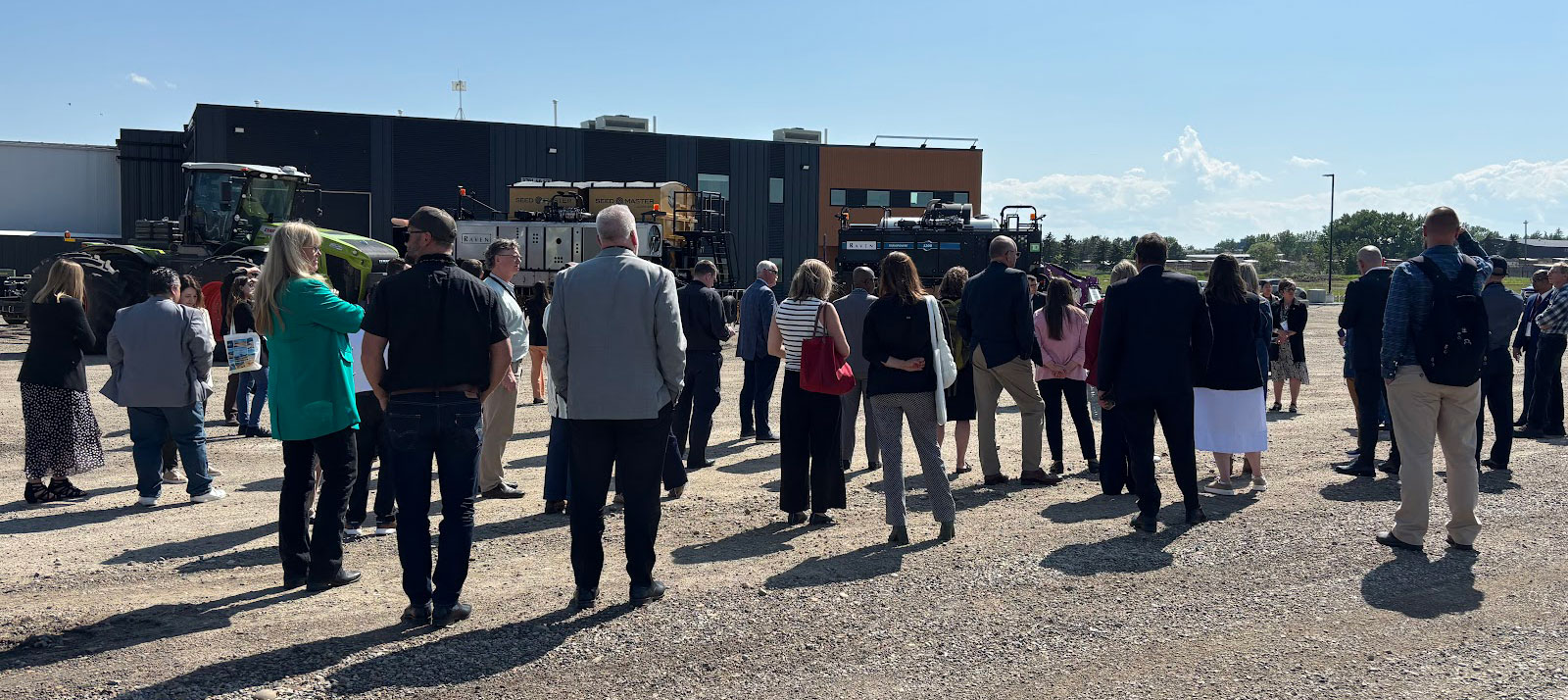The forum was organized by the Canadian office of the Inter-American Institute for Cooperation on Agriculture (IICA). It featured about 52 speakers from June 16 to 17 who were part of panels ranging from fostering food security to cultivating tomorrow’s agriculture today.
The Government of Canada separately hosted the G7 summit, which focused on issues like artificial intelligence, critical minerals, and the conflict between Israel and Iran.
“I always like to remember and remind people that the French Revolution was very romantic, talking about liberty, equality and fraternity,” said Jorge Esteve Recolons, who is the president of Mexico’s Consejo Nacional Agropecuario.
The reality is the French were driven to it by hunger, he said as part of the Voice of Farming panel. “There was a catastrophic failure that made people hungry, so to have stable nations, we really need to take care of food security … We cannot let politicians play around with that.”
The next 40 years will be the most important in the history of agriculture, said Dr. Jean-Charles Le Vallée, who is the Country Representative for IICA in Canada. “Agriculture is a miracle,” he said during an earlier interview, pointing to what farmers have so far achieved.
However, they must feed what by some estimates will be a world population of about 11 billion people by the 2060s during an era of increasing land degradation, water scarcity and decreasing food system resilience, he said.
IICA is a specialized agency of the Inter-American System for agriculture development, rural well-being and food security, headquartered in Costa Rica. It consists of 34 member states in North, South, and Central America as well as the Caribbean.

People at the forum included up to 250 invited delegates and an additional 1,000 guests attending online. They ranged from farmers and government officials to industry representatives, academics, and development experts from Canada to Argentina, but also from nations like Australia.
Flatt said the cooperation that is vital to solving the problems faced by farmers doesn’t simply happen on paper. “We have to physically be there with each other at these conferences, having these conversations, and then taking this information and putting it toward the policymakers, and being in those rooms of the policymakers,” he said.
“Everything that happens – and everything that can make farmers and ranchers across not only the Americas, but across the globe be successful – is about being in that room when it is developed.”
The biggest struggles in the last six months have involved geopolitical issues, said Keith Currie, president of the Canadian Federation of Agriculture. However, there are opportunities as well as challenges, he said as part of the Voice of Farming panel.
They include advancing free trade agreements among North American countries by using science-based evidence to modernize and harmonize national regulations so that they mirror each other for fair and open trade, he said. “I think there’s just tremendous opportunities all around that are sitting and waiting for us to explore, and we just need to do it.”
Sharing successful stories and models of farming – and acquiring knowledge at places like Olds College – is needed to help fuel a rising movement of First Nations farmers in Canada, said Kallie Wood, president and CEO of the National Circle for Indigenous Agriculture and Food.
She described it as a national opportunity that Canada is missing. “We need the knowledge in this room,” she told the forum as part of the Voice of Farming panel.
“We need the knowledge that’s there from academia, but we also need to have that Indigenous knowledge to understand our traditional ways of knowing and being so that we can grow this sector.”
Le Vallée said information and feedback from speakers and delegates will be shared among the agricultural ministers of IICA member states, including the G7 countries of Canada and U.S., when they meet Nov. 3 to 5 in Brazil.
IICA is considering turning the Americas forum into an annual event. Le Vallée said it could be hosted in varying places in Canada, as well as among other leading agricultural nations like the U.S., Mexico, Brazil and Argentina.
He said tours of the Smart Farm at Olds College were a particular hit among this year’s delegates. The working farm is a high-tech, living laboratory for crop, livestock and agricultural technology research totaling more than 3,000 acres.
“It’s not something they often see in their day job,” said Le Vallée. “Some of the people, like farmers, obviously they are well aware, but the rest of the groups of stakeholders and people in different jobs across the Americas don’t have that immediate, tangible connection with technology, with soils, and with what we saw in the Smart Farm tour, so they were blown away.”
However, there is more to Olds College than being one of the top 50 research colleges in Canada, said Todd Ormann, Vice-President of External Relations and Research. As one of the speakers at the forum, he said in an interview the College can also successfully host large conferences that can help farmers.
“Our mandate is to transform agriculture, and we have a lot of unique research on site, but we also have really good conference facilities. Anything we can do to support agriculture in terms of showcasing and telling its story, I’d like people to think about Olds College.”
Flatt was impressed by what he saw on campus. ”I’m actually going to be taking some things back to the university that I work at in Tennessee, and try to utilize some of those ideas that I saw here to help further our students’ education.”